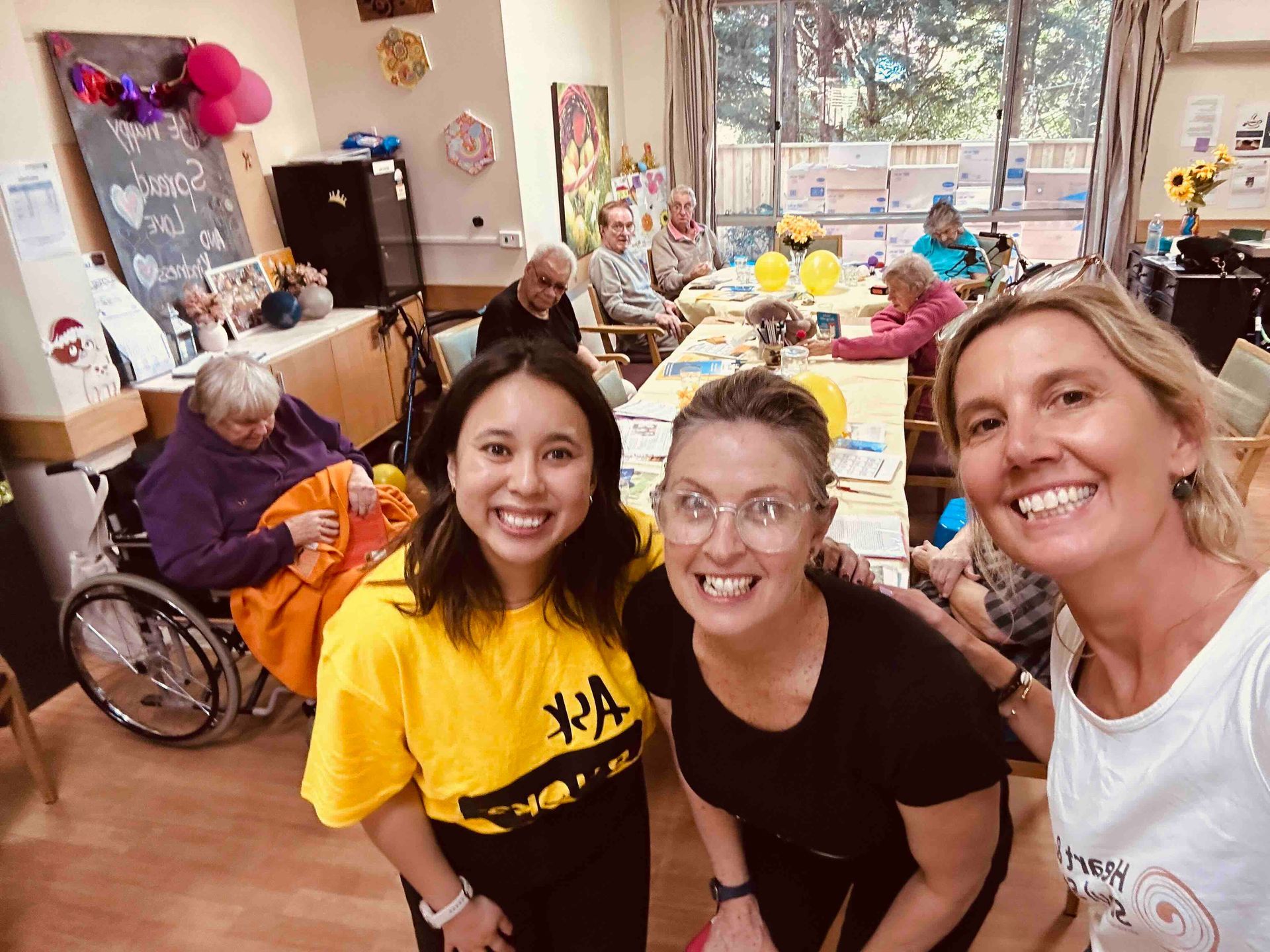Experts answer your curly conversation questions: Part 1
Q: What are some of the warning signs someone might be struggling or reaching crisis point?
Alan:
There are three things to watch out for. Firstly, someone might actually tell you that they’re struggling or feeling in crisis. So, listen carefully to what people say because sometimes what they say will give you a good clue. Secondly, watch and see how the person’s going. Are they behaving differently to how they usually do? Is there something that surprised you about what they’ve said or done in the last day or two? Perhaps they’ve done something that’s completely out of character. Thirdly, be sensitive to the emotions that someone’s displaying, particularly if the person’s showing intense emotion. It might be a sign if a person is suddenly very angry, very upset or possibly exhibiting great sorrow when you weren’t expecting that. So, listen to what someone has to say, watch what they’re doing and saying, and be receptive to their emotions.
Q: I’m not good at getting deep with mates. I get a bit withdrawn and awkward when it comes to serious issues. How do I prepare for a conversation with a friend who I know is having a hard time?
Kim:
I struggled with this when I first started working in suicide prevention because saying this sort of stuff out loud is tough. Even when you’re talking to your friends and family you can get a bit tongue tied. What I’ve found really helpful is to go on websites with conversation tips, like R U OK?
,
as they have practical things you can say. It might sound silly but saying it out loud and practising those phrases can help you feel more comfortable about having the conversation.
Q. It’s easy to talk to people you’re very close to but how do you open the conversation with others?
Alan:
It can be hard if you’re not familiar with somebody. You can use some exploratory questions and tread gently. You may even want to ask a person, “Are you ok to talk with me about some things”’ They’re likely to respond with an honest yes or no. But most people are very responsive if you ask in a genuine way.
Sometimes it’s easier to talk with someone that you don’t know that well. Sometimes you can be a more useful person in the conversation simply because you’re not too close to them. So don’t forget that you can play an important role even if they’re not your closest friend or family member.
Kim:
Often people are just looking for someone to listen. My nana had a great saying: “You have two ears and one mouth so use them in the right proportion.” So, if you don’t know them that well and you’re not used to their conversational cues try to listen more.
Q. When someone is so candid about their mental health but not what they’re actually going through, what open-ended questions can I ask to help them open up?
Kim:
Most of the time, asking quite directly is really helpful. You could say something like, “You’ve talked to me about your mental health issues. Can you talk to me about what’s going on for you at the moment? What’s happening in your life?” Those sort of questions give them permission to open up.
Alan:
It’s important to try and understand what the situation means for that person. Start to ask them questions like, “What happened yesterday? How did that feel for you? What things did you do as a result of that? What did you think the person was saying? How did that affect you”’ These can help draw somebody out. They can help reveal what their emotional response is. Often the emotional response is the real response even though we might only talk about it in concrete terms.






















